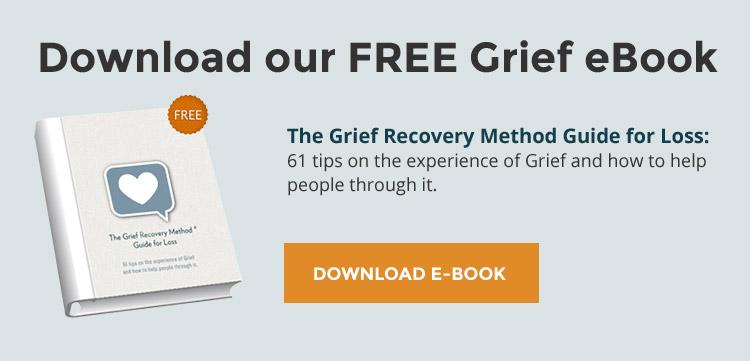
As we approach International Overdose Awareness Day (IOAD) on August 31, we are reminded of its significance in our global community. IOAD is not just a day of remembrance; it is the world's most extensive campaign dedicated to ending overdose, honoring those who have tragically lost their lives, and supporting the loved ones they left behind. This year's theme, "Together We Can," emphasizes our community's strength when we unite against this crisis.
We at the Grief Recovery Institute believe we can support each other during grief. It's crucial to understand the dangers of drug and alcohol overdose and the grief that follows, but it's equally important to remember that there is hope for those of us who mourn these and other losses.
When the pain gets intense, we've been trained by advertising, modern healthcare approaches, and a desire for quick fixes to seek something that will make it disappear. The solution seems simple: take a pill, and your problems will be solved. Opiates and similar drugs can provide that, leading you to want them more frequently. This pattern is called "short-term energy relieving behaviors" or STERBs.
The Grief Recovery Method highlights the "old tools" we've relied on to cope with grief, including myths, misinformation, the urge to appear "fine," and the STERBs we've picked up from our families and communities.
The Method then introduces new steps to help you identify, name, and express the unresolved feelings tied to unmet hopes, dreams, and expectations. Since the GRM addresses a wide range of losses beyond just death, it's suitable for tackling various types of losses expected in the histories of those struggling with substance use and addiction.
Additionally, the GRM has been used to prevent relapse by resolving the emotional pain that accumulates as new losses occur. Learning and applying these tools throughout life for different kinds of losses can be a powerful resource in helping you achieve and maintain sobriety.
Unlike other programs, the Grief Recovery Method uniquely focuses on grief as an emotional experience rather than a matter of faith or a mental health issue. We understand that most grievers deal with broken hearts, regardless of the type of loss experienced. We believe you aren't broken and don't need fixing—you need to be heard. You need a safe space to express your emotional pain without being subjected to analysis, criticism, or judgment. You need an action plan to address the unresolved feelings tied to your lost relationship. You need the chance to let go of the painful aspects of that relationship so you can eventually find joy in the memories rather than being trapped in the pain of how it ended.
We also provide tools to help those enduring painful, ongoing relationships process past hurts, enabling you to move forward and look toward a brighter future.
This August 31, remember the significance of International Overdose Awareness Day but also recognize that your mental health and grief are essential to acknowledge every day of the year.



























Add new comment